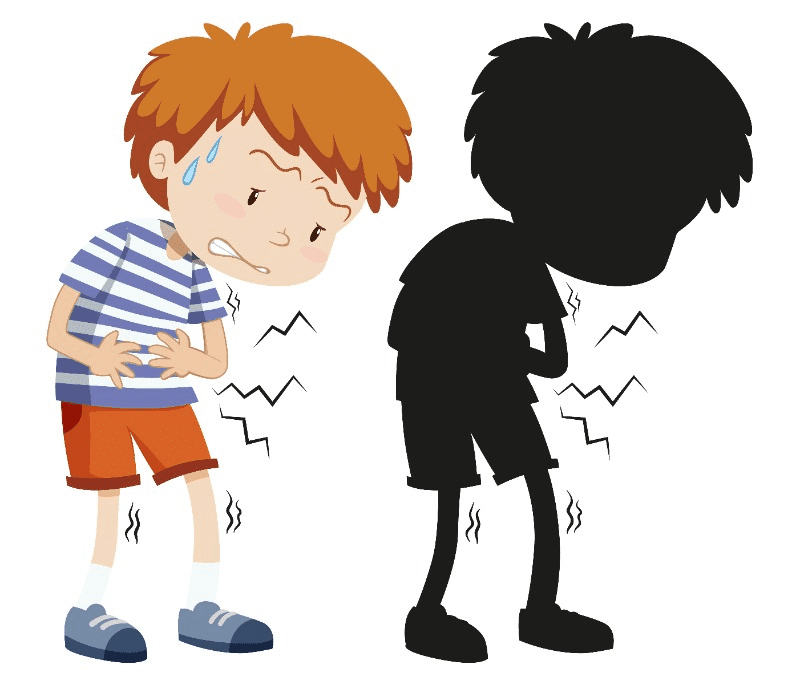Key Takeaways
-
Appropriate Dosage: Consult a healthcare professional to determine the right dosage of milk thistle based on your specific health needs and conditions.
-
Liver Health Support: Milk thistle may benefit liver health, particularly in managing liver diseases and cirrhosis, but its effectiveness varies among individuals.
-
Potential for Diabetes Management: Consider milk thistle as a complementary option for diabetes management, but always seek medical advice before incorporating it into your treatment plan.
-
Awareness of Risks and Interactions: Be mindful of potential risks and interactions associated with milk thistle, especially if you are taking other medications or are pregnant or lactating.
-
Understanding Silymarin‘s Mechanism: Gain insight into the mechanism of silymarin, the active component of milk thistle, to comprehend its potential effects on the body better.
-
Informed Decision-Making: Make informed decisions about using milk thistle by weighing its potential benefits against the risks and staying informed about its interactions and impact on specific health conditions.
Are you getting the most out of your milk thistle supplement? Knowing the right amount of milk thistle is important for it to work well. It can help your liver and has antioxidants. This post will talk about the best dose of milk thistle and how it can help you stay healthy. Getting the right amount is important if you’re new to herbal supplements or want to improve your health.
Overview of Milk Thistle: Uses and Pharmacology
Recommended Dosage
The appropriate amount can vary based on the specific product and individual health needs. However, a common recommendation for adults is to take 140 mg of silymarin three times daily for liver support. It’s crucial to follow the guidelines healthcare professionals provide or as indicated on the product label.
Milk thistle supplements are available in various forms, including capsules, powders, and liquid extracts. For instance, a standardized extract might contain 70-210 mg of silymarin per capsule. Choosing products from reputable brands with quality assurance is important to ensure potency and purity.
Considerations
Before starting any supplement regimen, consulting a healthcare provider is essential—especially for individuals with existing medical conditions or those taking medications. This herb may interact with certain drugs like antipsychotics, statins, and some cancer medications.
While milk thistle is generally well-tolerated, potential side effects such as digestive issues or allergic reactions could occur in some people. Moreover, pregnant women or individuals allergic to plants in the same family (ragweed) should avoid milk thistle.
Milk Thistle Dosage and Dosing Guidelines
Recommended Dosage Range
The recommended amount varies based on the form of the supplement and the specific health condition being targeted. For instance, typical dosing guidelines suggest a range of 140-800 mg of silymarin daily. This amount is usually divided into two or three doses throughout the day.
Milk thistle supplements are available in various forms, such as capsules, tablets, liquid extracts, and powders. The concentration of active ingredients can differ among these forms, influencing the appropriate dosage for each. Considering these variations is crucial when determining an individual’s milk thistle dosage.
Consultation with Healthcare Professional

Before starting any new supplement regimen, especially one involving milk thistle, it’s essential to consult with a healthcare professional. They can provide personalized advice based on an individual’s health needs and medical history. Consulting a healthcare professional ensures the chosen dosage aligns with existing medications and overall health conditions.
It’s important to note that while milk thistle is generally considered safe for most people when taken within recommended amounts, exceeding the suggested dose may lead to adverse effects. Therefore, seeking guidance from a healthcare provider before supplementation is paramount in ensuring safety and efficacy.
Benefits of Milk Thistle in Liver Diseases
Protection from Damage
When taken at the right dosage, milk thistle may help shield the liver from harm caused by toxins and free radicals. These harmful substances can wreak havoc on the liver, but milk thistle’s protective properties could offer a defense.
Studies have shown that milk thistle has potential benefits in managing various liver diseases such as hepatitis, cirrhosis, and fatty liver disease. By taking the appropriate dosage of milk thistle, individuals with these conditions might experience improvements in their liver health.
Anti-Inflammatory Effects
The anti-inflammatory properties found in milk thistle are believed to play a role in its positive effects on liver health. When consumed at an optimal dosage, milk thistle may help reduce inflammation within the liver, which is crucial for maintaining overall liver function.
When considering how much milk thistle to take for specific liver conditions, it’s important to consult a healthcare professional who can provide personalized recommendations based on individual health needs.
Impact of Milk Thistle on Liver Health and Cirrhosis
Potential Benefits
Milk thistle is a plant that some people think can help your liver and reduce swelling if you have cirrhosis. Some studies show that it might slow down cirrhosis and make life better for people with it. The main part of milk thistle, silymarin, has things that can help your liver work better.
Research also points to the possibility that milk thistle might reduce insulin resistance and improve cardiovascular health markers in individuals with cirrhosis. These findings highlight the potential multifaceted benefits of incorporating milk thistle into a treatment regimen for liver-related conditions.
Cautionary Note
It’s important to know that milk thistle can help with liver health, but it’s not a substitute for regular medical treatments. You should talk to your doctor before taking new supplements or changing your treatment plan. This will help you get the right milk thistle dose and ensure it won’t cause problems with other medications or conditions.
Silymarin: Mechanism of Action in the Body
Antioxidant and Anti-inflammatory Properties
Milk thistle has something called silymarin that works like an antioxidant. It helps protect the body from free radicals that can hurt cells and cause health problems like liver damage. Silymarin also helps reduce inflammation, which is important for staying healthy.
Silymarin’s antioxidant and anti-inflammatory properties are particularly beneficial for liver health. Combating oxidative stress and reducing inflammation may help prevent or slow down liver damage caused by factors such as alcohol consumption or certain medications.
Liver Cell Regeneration and Inhibition of Damage Pathways
Another important aspect of silymarin’s mechanism of action is its ability to promote the regeneration of liver cells. This means it can support the growth of new healthy liver cells, aiding in the recovery from liver damage.
Moreover, silymarin has been found to inhibit certain pathways involved in liver damage. For example, it may interfere with processes that lead to fibrosis (scarring) of the liver tissue—a common consequence of chronic liver diseases like cirrhosis.
Potential Benefits of Milk Thistle for Diabetes Management
Managing Diabetes
In some studies, milk thistle has shown potential in improving insulin sensitivity and lowering blood sugar levels. These effects could be beneficial for individuals managing diabetes. The active ingredient, silymarin, possesses antioxidant properties that may protect against complications associated with diabetes.
Research suggests that the antioxidant properties of silymarin found in milk thistle could play a role in reducing oxidative stress and inflammation, both of which are linked to diabetic complications. By enhancing insulin sensitivity, milk thistle may improve glucose control in diabetic individuals.
Further Research Needed
Even though milk thistle looks good for helping with diabetes, we still need more research. We need more tests and studies to determine how much milk thistle people with diabetes should take.
It’s important to consult healthcare professionals before incorporating milk thistle into a diabetes management plan, as they can provide personalized guidance based on an individual’s overall health status and existing treatment regimen.
Risks and Side Effects of Taking Milk Thistle
Possible Gastrointestinal Symptoms

Some individuals may experience mild gastrointestinal symptoms such as nausea or diarrhea when taking milk thistle. These symptoms are generally considered mild and do not affect everyone who takes the supplement. It’s important to note that these effects are temporary and may subside as the body adjusts to the supplement.
Allergic Reactions
Individuals with known allergies to plants in the same family as ragweed or daisies should be cautious when considering milk thistle supplementation. Allergic reactions are possible, although they are not common. If you have a history of plant allergies, it’s crucial to consult with a healthcare provider before incorporating milk thistle into your routine.
Milk thistle is generally safe for consumption, but knowing the potential side effects is essential before starting supplementation. Consulting a healthcare provider can provide personalized guidance and help mitigate any risks associated with taking milk thistle.
Interactions with Milk Thistle and Other Medications
Potential Medication Interactions
If you take milk thistle with some medicines, it can mess up how well the meds work. For example, if you’re taking statins for cholesterol, milk thistle can mess with how your liver breaks down the statins. It can also affect antipsychotic and chemo drugs.
Milk thistle could reduce their effectiveness. This is a crucial point for individuals using these types of medications alongside milk thistle as it could compromise their treatment outcomes.
Importance of Informing Healthcare Providers
It’s essential for individuals taking any form of medication or supplements like milk thistle to inform their healthcare providers about all substances being consumed. This includes over-the-counter medicines, herbal remedies, and vitamins. Patients allow healthcare professionals to assess potential interactions accurately and provide appropriate guidance for safe consumption.
Milk Thistle Use During Pregnancy and Lactation
Limited Research
Research on milk thistle dosage during pregnancy or breastfeeding is limited. Due to this lack of comprehensive research, the effects of milk thistle on pregnant women and nursing mothers are not fully understood.
While some studies suggest the potential benefits of milk thistle for liver health, there is insufficient data regarding its safety during pregnancy and lactation. As a result, caution is advised when considering milk thistle supplementation during these critical periods.
Healthcare Provider Consultation
Avoiding milk thistle supplementation during pregnancy or while breastfeeding is generally recommended unless specifically advised by a healthcare professional. This cautious approach stems from the potential risks associated with using herbal supplements without a thorough understanding of their impact on maternal and fetal health.
Discussing any concerns or considerations about using milk thistle during pregnancy or lactation with a qualified healthcare provider is crucial. Healthcare professionals can provide personalized guidance based on an individual’s medical history, current health status, and specific needs.
Closing Thoughts
You know that milk thistle can be good for your liver and diabetes. But it’s important to talk to a doctor before taking it because it could cause problems with other medicines you’re already taking. With its promising hepatoprotective properties, milk thistle holds the potential to support liver function and overall well-being. Stay informed, stay proactive, and make well-informed decisions about your health.
Take charge of your health by staying informed about natural remedies like milk thistle. Always consult a healthcare provider before significantly changing your wellness routine. Stay proactive in managing your health and well-being.
Frequently Asked Questions
Is milk thistle safe for pregnant women to use?
Yes, but it’s important to consult a healthcare professional before using milk thistle during pregnancy. While some studies suggest potential benefits, the safety of milk thistle during pregnancy hasn’t been extensively researched.
How much milk thistle should I take daily?
The typical recommended milk thistle dosage is 140 mg to 800 mg daily, divided into two or three doses. However, individual needs may vary, so consulting a healthcare provider for personalized dosing guidance is advisable.
Are there any common side effects of taking milk thistle?
Some individuals may experience mild laxative effects or digestive issues when taking milk thistle. It’s important to be aware that allergic reactions are possible and can manifest as itching or rash. If you experience any adverse effects, discontinue use and seek medical advice.
Can I take milk thistle if I have liver disease?
Milk thistle has been studied for its potential benefits in liver diseases such as hepatitis and cirrhosis. However, discussing it with a healthcare professional before using it as a complementary treatment alongside conventional medical care for liver conditions is crucial.
Does milk thistle interact with other medications?
Yes, milk thistle can interact with certain medications, including blood thinners and anti-anxiety drugs. Consulting your healthcare provider or pharmacist before starting supplementation is essential to avoid potential interactions and ensure safety.

